Past Congresses
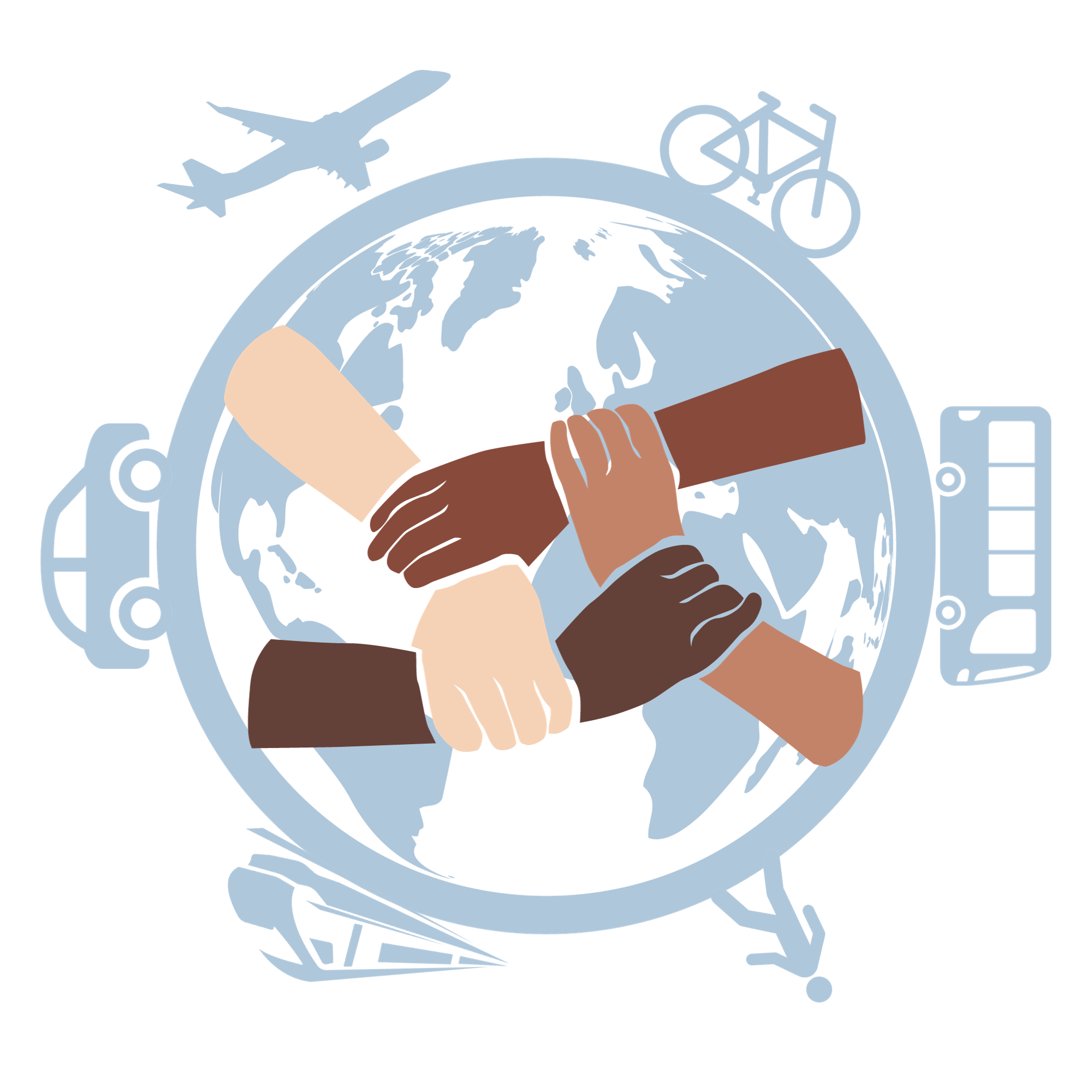
“Envisioning Equitable Transitions to Sustainable Transportation Systems” (Spring 2024)
May 16-17, 2024
A UIUC-UIC Collaborative Workshop
Sponsored by the Alfred P. Sloan Foundation
Envisioning Equitable Transitions to Sustainable Transportation Systems” brought together a diverse group of researchers, educators, industry professionals, and activists to discuss urgent questions about transitioning to low-carbon transportation systems — whatever they might be — while addressing the needs of all populations regardless of race, ethnicity, or socioeconomic standing. The goals of this gathering were to introduce attendees to cutting-edge issues surrounding sustainable transportation and social justice, to build bridges across different approaches, disciplines, and geographies, and to chart new directions toward a sustainable, and just, future.
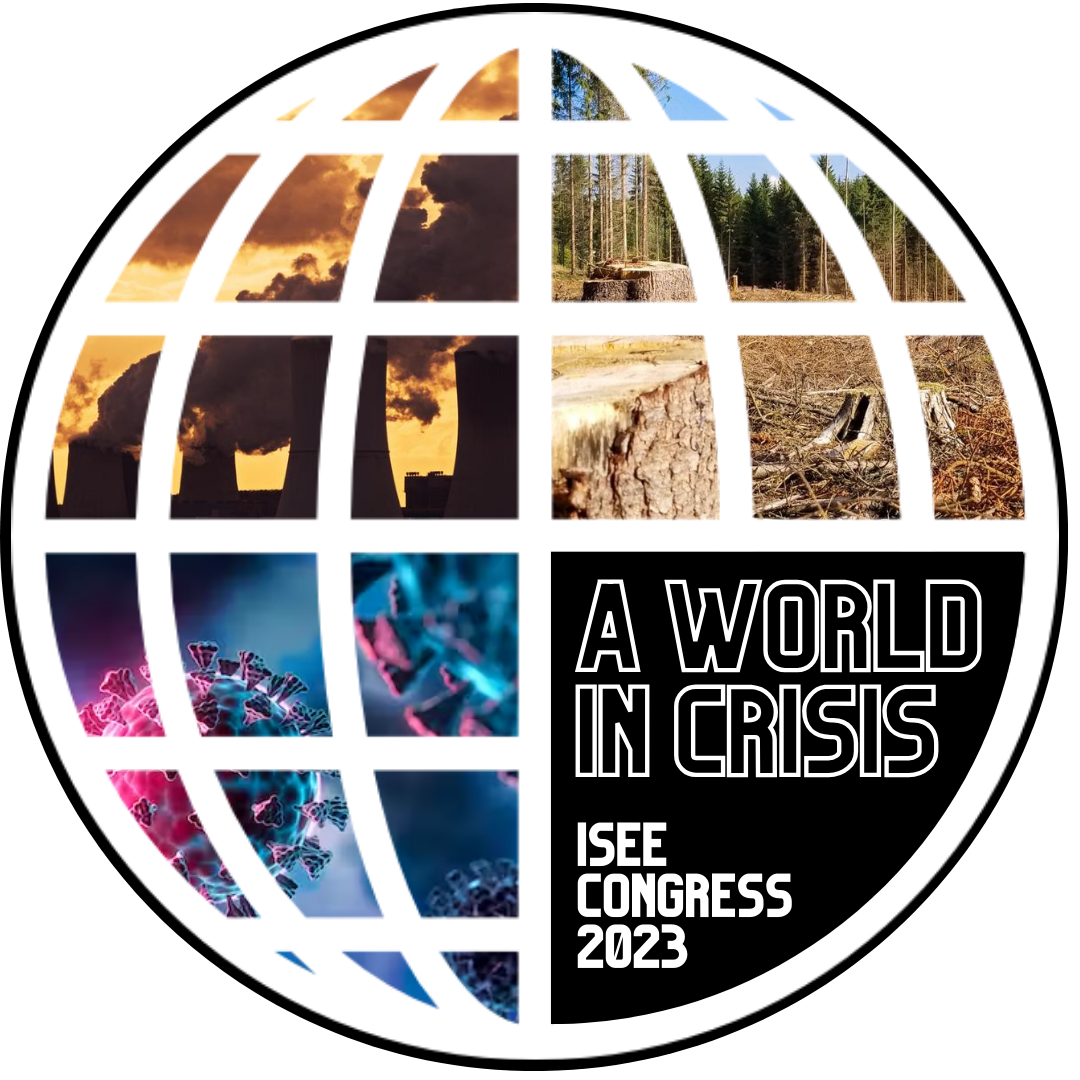
“Addressing Crises of Planetary Scale” (Spring 2023)
April 12-13, 2023
iSEE Congress 2023 brought together experts from multiple disciplines, nationally and from campus, to discuss how interdisciplinary collaborations can help tackle the enormous challenge of coordinating global responses to crises of planetary scale. By bringing together experts from multiple disciplines, the symposium fostered further collaborations and provided a public platform for the community to engage in pressing concerns.

“Circular Food Systems” (Fall 2021)
Oct. 19, Oct. 27, Nov. 3, Nov. 9, 2021
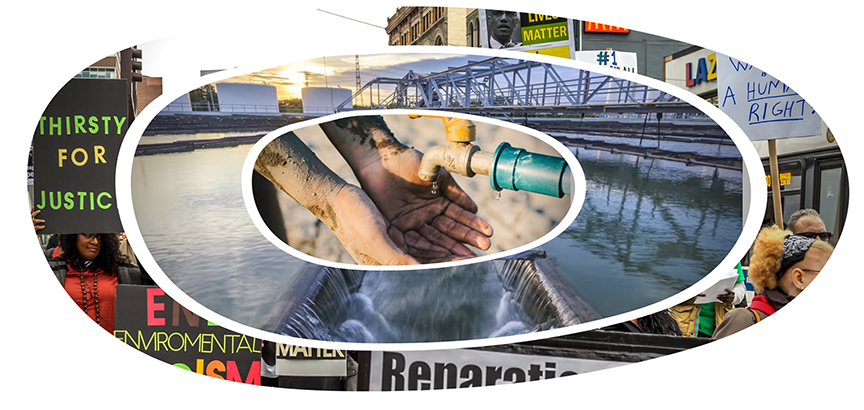
“The Future of Water” (Spring 2021)
April 6, 14, 20 and 23, 2021
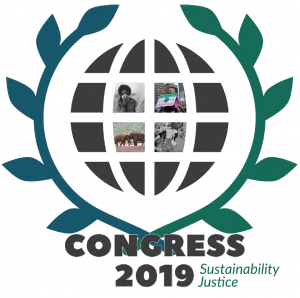
“Sustainability Justice” (2019)
Sept. 24-25, 2019
iSEE Congress 2019 addressed environmental justice, a keystone concept driving the broader sustainability project. Simultaneously representing a field of scholarship, political agenda, and framework for understanding our fast-changing world, the marriage of social justice and sustainability has moved beyond its initial focus on the inequitable distribution of environmental burdens to incorporate a range of pressing social and ecological issues within a unifying framework that strives to realize sustainable justice for all. But as human rights advocates know, the concept of justice can be defined in multiple ways, and its implementation into policy, environmental law, ecological design and planning, not to mention global trade, faces great challenges.

“Sustainable Cities” (2018)
Oct. 3-5, 2018
iSEE Congress 2018 addressed strategies for meeting our growing urban transportation, housing, and food needs sustainably and for making our cities more resilient to climate change.
Cities are the centers of economic activity but also large consumers of energy and water and sources of solid waste, air pollution, and greenhouse gas emissions across the world. They are hotbeds for poor air quality, congestion, and densified housing, and they are vulnerable to extreme damages to life and infrastructure due to severe weather events. Cities with more green space, permeable surfaces, and disaster-resilient infrastructure emit fewer emissions, thereby benefiting human health and well-being and increasing resilience against extreme weather events.
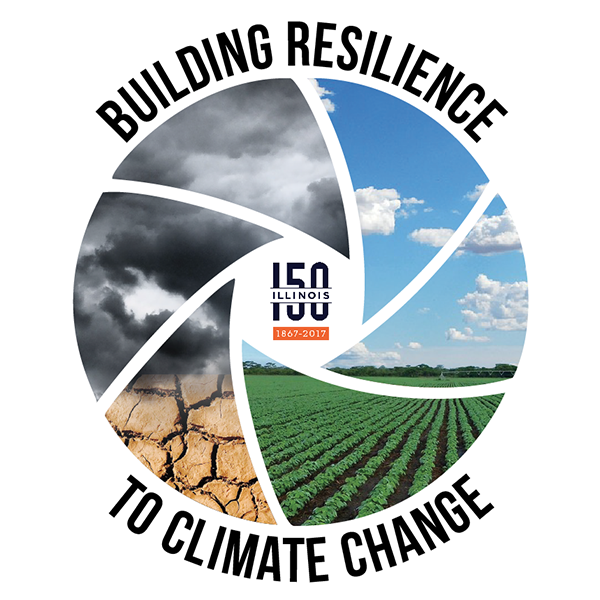
“Building Resilience to Climate Change” (2017)
Sept. 18-20, 2017
The 2017 event took in the breadth and depth of climate change. The is irrefutable evidence that the world is warming. And with that comes a challenge to our very way of life: A growing population must be fed — and kept healthy and safe — as increasing temperatures affect agriculture and ecosystems, and extreme weather and other climate-related factors put homes and lives in danger.
Congress 2017 addressed the challenges posed by climate change, as well as areas for further research, education, and institutional development to adapt to it.

“Energy 2030: Paths to a Sustainable Future” (2016)
Sept. 12-14, 2016
In 2016, the focus was on the potential for improvements in energy efficiency, alternative forms of renewable energy, and other low-carbon sources of energy to meet societal needs for electricity, transportation, and heating more sustainably in the future. The Congress provided not only a forum to discuss the near- and medium-term challenges on the path toward sustainable energy consumption, but also key takeaways for an agenda of actionable research and policy directions that could contribute to long-term solutions.
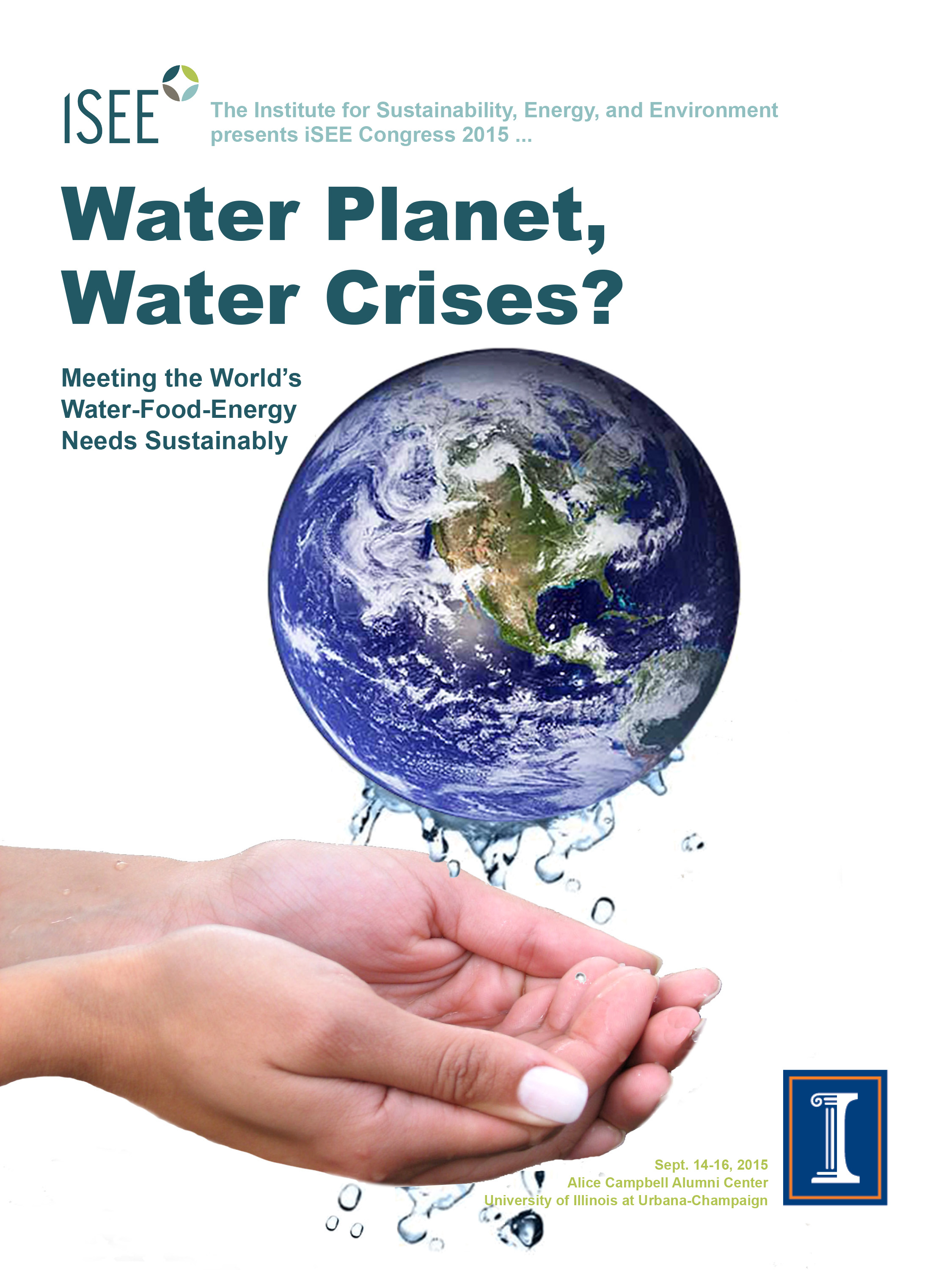
“Water Planet, Water Crisis? Meeting the World’s Water-Food-Energy Needs Sustainably” (2015)
Sept. 14-16, 2015
There is increasing recognition of the complex interconnectedness between water resources, food and energy production, and the need for new strategies for enabling interdisciplinary knowledge and systems-thinking to significantly address global water crises. Water is demanded for itself and as a critical input for energy and food production, leading to an interaction between water, food and energy resources — and efforts to address one will impact the other two.
Water is used not only for human needs but also to maintain ecosystem services, which in turn affects human livelihoods and well-being. There is also increasing evidence that climate change is leading to increased hydrologic variability with a significant impact on the hydrologic cycle, water availability — and water demand at the global, regional, and local levels.
Addressing these challenges across national and regional boundaries requires coordinated action by researchers, and government and non-government organizations — in conjunction with industry practitioners.
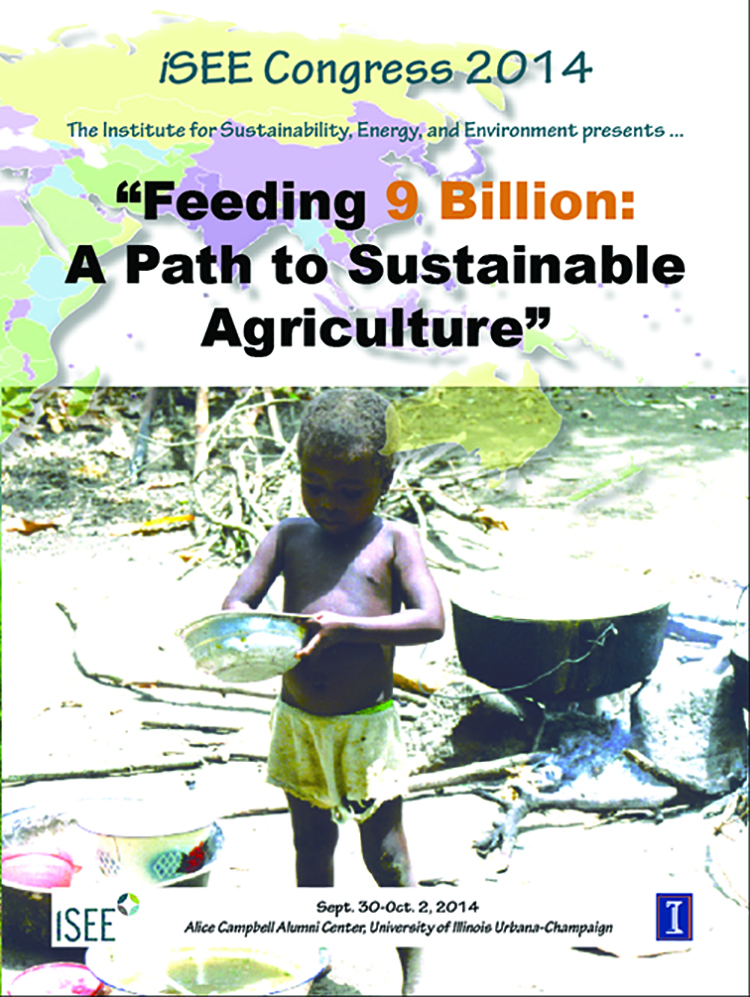
“Feeding 9 Billion: A Path to Sustainable Agriculture” (2014)
Sept. 30-Oct. 2, 2014
iSEE convened this Congress to advance understanding of the state of science on the great challenges for agriculture in the coming decades: providing a secure and safe supply of food, feed and fuel to an ever-increasing human population using agricultural practices that are ecologically sustainable and adaptable to climate change.
Day 1 of the Congress included sessions that address the implications for sustainability of the interactions among climate change, water resources, ecosystem services and agriculture. Day 2 focused on the promise and societal challenges posed by technological advancement for a sustainable agriculture and its implications for the research and policy communities.